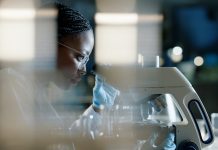In a study published in the Proceedings of the National Academy of Sciences, researchers are advocating for regulatory frameworks to steer the responsible growth of bio-hybrid robotics
This emerging field integrates living tissues and cells with synthetic components, promising revolutionary advancements in technology, but also raising unprecedented ethical concerns.
Bio-hybrid robots
Bio-hybrid robots, blending organic and mechanical elements, represent a leap from traditional robotics. They can perform diverse tasks such as crawling, swimming, and sensing environmental changes with remarkable efficiency.
However, experts warn that without proper oversight, these innovations could pose risks to society and the environment.
Dr. Rafael Mestre from the University of Southampton, a co-lead author of the study, highlighted the need for regulation akin to that governing biomedical devices and stem cells. He emphasised, “The challenges in overseeing bio-hybrid robotics are not dissimilar to those encountered in the regulation of biomedical devices, stem cells and other disruptive technologies. ”
What are the main concerns?
The study’s authors identified three primary areas of concern: the interaction of bio-robots with humans and ecosystems, the potential integration of bio-robots into human bodies, and ethical considerations surrounding their moral status.
Aníbal M. Astobiza, an ethicist from the University of the Basque Country and co-lead author, highlighted the complexity: “The living tissue used in their fabrication, potential for sentience, distinct environmental impact, unusual moral status, and capacity for biological evolution or adaptation create unique ethical dilemmas that extend beyond those of wholly artificial or biological technologies.”
The Biohybrid Futures project, led by Dr. Mestre, aims to establish guidelines for the ethical development and application of bio-hybrid robotics. This initiative advocates for thorough risk assessments, consideration of societal implications, and enhanced public awareness.
Dr. Matt Ryan from the University of Southampton, co-author of the study, stressed the importance of public engagement: “If debates around embryonic stem cells, human cloning or artificial intelligence have taught us something, it is that humans rarely agree on the correct resolution of the moral dilemmas of emergent technologies.”
The research community is urged to adopt proactive measures to guide their work responsibly. Dr. Victoria Webster-Wood from Carnegie Mellon University, a co-author, expressed the need for collective responsibility: “Taking these steps should not be seen as prescriptive in any way, but as an opportunity to share responsibility, taking a heavy weight away from the researcher’s shoulders.”
As discussions around bio-hybrid robotics gain momentum, the study calls for a democratic approach to navigating the ethical challenges. It advocates for inclusive dialogue involving researchers, policymakers, and the public to ensure that technological advancements in this field are ethically sound and beneficial for all.











